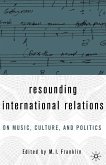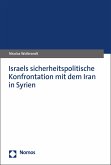This book looks at the influence of military regimes in seven cases: Pakistan in 1965, India in 1971, Israel in 1956 and 1967, Egypt in 1973, Iran in 1969 and Iraq in 1980. The author contends that countries with military governments are warlike not because they glorify war, but rather because they are poorly equipped to manage diplomacy.
"Militarization and War is an important work in the field of security studies. This book successfully clarifies and tests prominent efforts among scholars of military sociology and foreign policy to theorize about the interplay of militarization, militarism and war. Two general propositions about militarization, concerning its pernicious effects on war proneness and cognitive bias, are confirmed. Authoritative case studies on Pakistan, India, Israel, Egypt, Iran and Iraq bring a wealth of evidence to bear on the questions at hand. Among the more specific effects confirmed for militarization are hyper-sensitivity to windows of opportunity and a tendency to escalate disputes. Just as interesting is the generally mixed performance for the presumed effects of militarism; for example, the cases suggest that militaries neither seek territorial aggrandizement nor attack at the height of their relative power. In sum, this book is a must-read for students of security studies and civil-military relations in particular and international relations in general."
- Patrick James, Director, Center for International Studies, USC"In this book, Julian Schofield explores a neglected question in the studies on war: under what conditions do militaries pursue war-like policies? He cleverly unpacks the military-war nexus while offering some counter-intuitive arguments and testable hypotheses for further analysis. The findings have serious implications for the study of civil-military relations, conflict initiation and regional security, especially in South Asia and the Middle East."
- T.V. Paul, James McGill Professor of International Relations, McGill
University, Montreal, Canada
- Patrick James, Director, Center for International Studies, USC"In this book, Julian Schofield explores a neglected question in the studies on war: under what conditions do militaries pursue war-like policies? He cleverly unpacks the military-war nexus while offering some counter-intuitive arguments and testable hypotheses for further analysis. The findings have serious implications for the study of civil-military relations, conflict initiation and regional security, especially in South Asia and the Middle East."
- T.V. Paul, James McGill Professor of International Relations, McGill
University, Montreal, Canada









